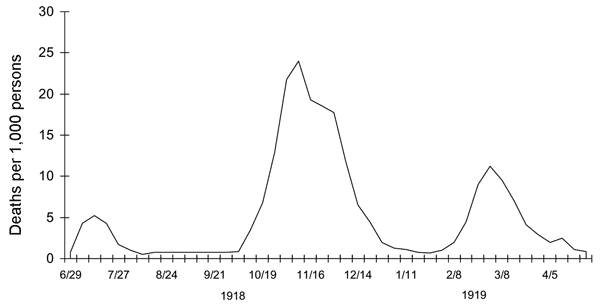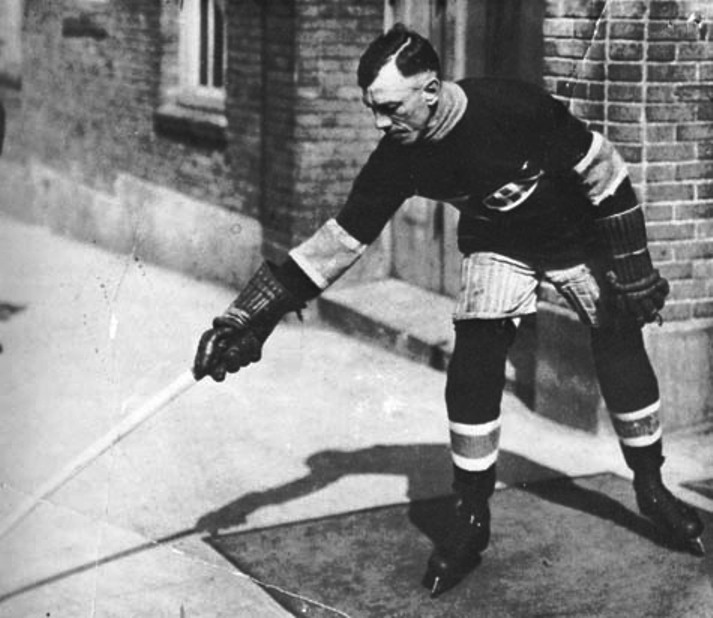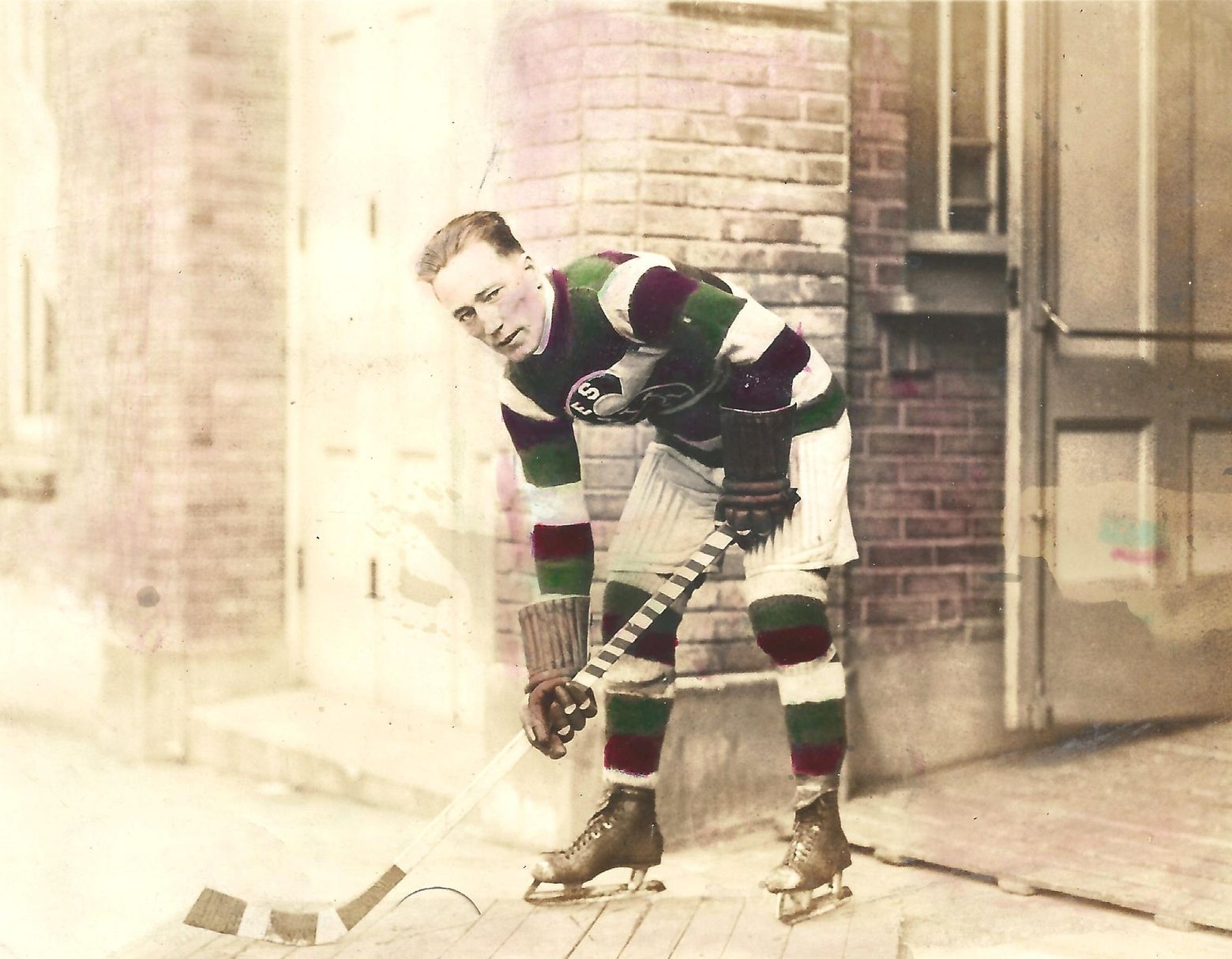tarheelhockey
Offside Review Specialist
Since it's being referenced a lot lately as a comparable to the current situation, a rundown of what happened in 1919:
By the time the Stanley Cup finals were played in March, the Spanish flu pandemic was actually on its 3rd wave. The worst of the pandemic took place in late 1918; it was the second wave that killed Ottawa defenseman Hamby Shore in October.

This flu was unusual in that it mainly targeted young adults. Bear in mind that this took place during the height of mobilization for WWI, when huge numbers of young men were traveling in crowded ships and trains.
When the Habs beat Ottawa in the NHL Final, they qualified for a playoff against Seattle (the champion of the PCHA... the western major league and sort-of predecessor to the Western Conference) for the Stanley Cup. That meant a 3000-mile train ride across Canada, in which they stopped to play exhibitions in Regina, Calgary, and Vancouver. There was some speculation at the time that they may have picked up the flu while in the Vancouver area, but based on the incubation period for Spanish flu it seems much more likely it was contracted after they arrived in Seattle.

Notably, PCHA president Lester Patrick had suggested back in February that the series be shortened to only 3 games. If that had happened, there's a very good chance that the flu outbreak among the two teams would not have occurred (see this thread).
The series ran 3/19 to 3/29 and was very tightly played, and Game 4 was especially brutal. Ending 0-0 after 2OT, it was the longest game on record at the time. Fatigue and mounting injuries became a major factor in the series, which could not have helped the players' health status.
The morning of the 30th, Habs defenseman Joe Hall and forward Jack McDonald woke up with high fevers. The next day, prior to the decisive final game, three more players (Newsy Lalonde, Billy Coutu, and Louis Berlinguette) were afflicted, as was Habs coach George Kennedy. As a last-ditch effort, a proposal was made to allow the Habs to fill their roster with players from the Victoria Aristocrats and play the game. That idea was rejected, and Game 6 was cancelled at 2:30pm. With warm spring weather already coming in, the decision was made to pull up the arena ice and call the series finished.

This created a question of how to award the Cup. Technically the final game had been forfeited by Montreal. The Cup was offered to Seattle by forfeit, and manager Pete Muldoon refused to take it under those circumstances. The series was deemed a tie, and Toronto was granted an extra year as "champion" since they had won the most recent playoff. Profits from the five Finals games were divided 50/50, rather than 60/40 as usual. On the base of the Stanley Cup bowl, both teams are listed as champions with the words "SERIES NOT COMPLETED".
On 4/2, Montreal's Odie Cleghorn came down with the virus, and then it hit two Seattle players (Muzz Murray and Roy Rickey) as well as coach Muldoon. This caused the cancellation of a post-season exhibition in Vancouver, and absolutely ended any possibility of a finish to the series. The remaining healthy players dispersed for the season.
McDonald and Kennedy were both severe cases, but would ultimately recover. Hall's condition progressed to pneumonia on the 4th. He died the following day and was buried on the 8th in a high-profile funeral that had a constellation of Hall of Famers in attendance. Kennedy was the final surviving victim to be released.

Notably, both Kennedy (complications of this virus, 1921) and Muldoon (heart attack, 1929) would die very young. Vezina, who almost certainly contracted the virus but was not symptomatic, died of tuberculosis in 1926.
By the time the Stanley Cup finals were played in March, the Spanish flu pandemic was actually on its 3rd wave. The worst of the pandemic took place in late 1918; it was the second wave that killed Ottawa defenseman Hamby Shore in October.

This flu was unusual in that it mainly targeted young adults. Bear in mind that this took place during the height of mobilization for WWI, when huge numbers of young men were traveling in crowded ships and trains.
When the Habs beat Ottawa in the NHL Final, they qualified for a playoff against Seattle (the champion of the PCHA... the western major league and sort-of predecessor to the Western Conference) for the Stanley Cup. That meant a 3000-mile train ride across Canada, in which they stopped to play exhibitions in Regina, Calgary, and Vancouver. There was some speculation at the time that they may have picked up the flu while in the Vancouver area, but based on the incubation period for Spanish flu it seems much more likely it was contracted after they arrived in Seattle.

Notably, PCHA president Lester Patrick had suggested back in February that the series be shortened to only 3 games. If that had happened, there's a very good chance that the flu outbreak among the two teams would not have occurred (see this thread).
The series ran 3/19 to 3/29 and was very tightly played, and Game 4 was especially brutal. Ending 0-0 after 2OT, it was the longest game on record at the time. Fatigue and mounting injuries became a major factor in the series, which could not have helped the players' health status.
The morning of the 30th, Habs defenseman Joe Hall and forward Jack McDonald woke up with high fevers. The next day, prior to the decisive final game, three more players (Newsy Lalonde, Billy Coutu, and Louis Berlinguette) were afflicted, as was Habs coach George Kennedy. As a last-ditch effort, a proposal was made to allow the Habs to fill their roster with players from the Victoria Aristocrats and play the game. That idea was rejected, and Game 6 was cancelled at 2:30pm. With warm spring weather already coming in, the decision was made to pull up the arena ice and call the series finished.

This created a question of how to award the Cup. Technically the final game had been forfeited by Montreal. The Cup was offered to Seattle by forfeit, and manager Pete Muldoon refused to take it under those circumstances. The series was deemed a tie, and Toronto was granted an extra year as "champion" since they had won the most recent playoff. Profits from the five Finals games were divided 50/50, rather than 60/40 as usual. On the base of the Stanley Cup bowl, both teams are listed as champions with the words "SERIES NOT COMPLETED".
On 4/2, Montreal's Odie Cleghorn came down with the virus, and then it hit two Seattle players (Muzz Murray and Roy Rickey) as well as coach Muldoon. This caused the cancellation of a post-season exhibition in Vancouver, and absolutely ended any possibility of a finish to the series. The remaining healthy players dispersed for the season.
McDonald and Kennedy were both severe cases, but would ultimately recover. Hall's condition progressed to pneumonia on the 4th. He died the following day and was buried on the 8th in a high-profile funeral that had a constellation of Hall of Famers in attendance. Kennedy was the final surviving victim to be released.

Notably, both Kennedy (complications of this virus, 1921) and Muldoon (heart attack, 1929) would die very young. Vezina, who almost certainly contracted the virus but was not symptomatic, died of tuberculosis in 1926.
Last edited:


